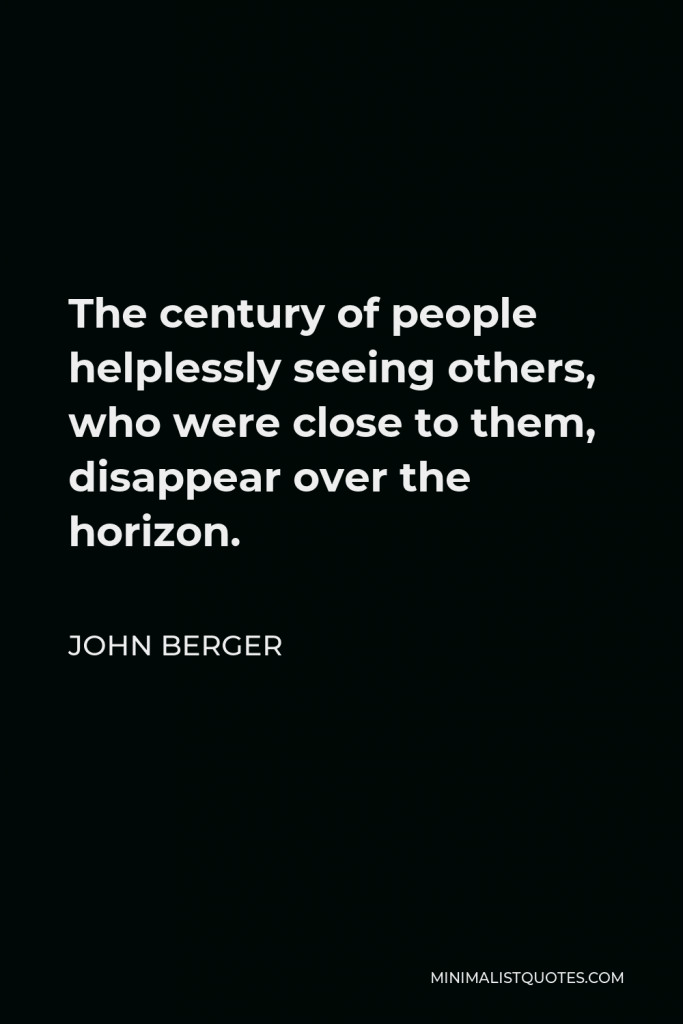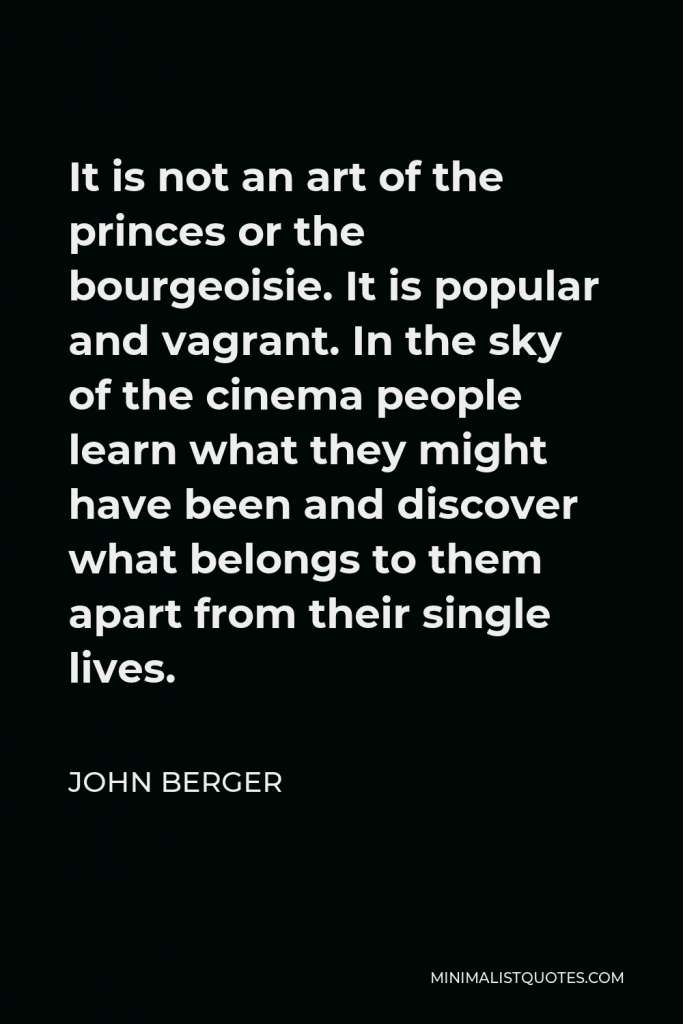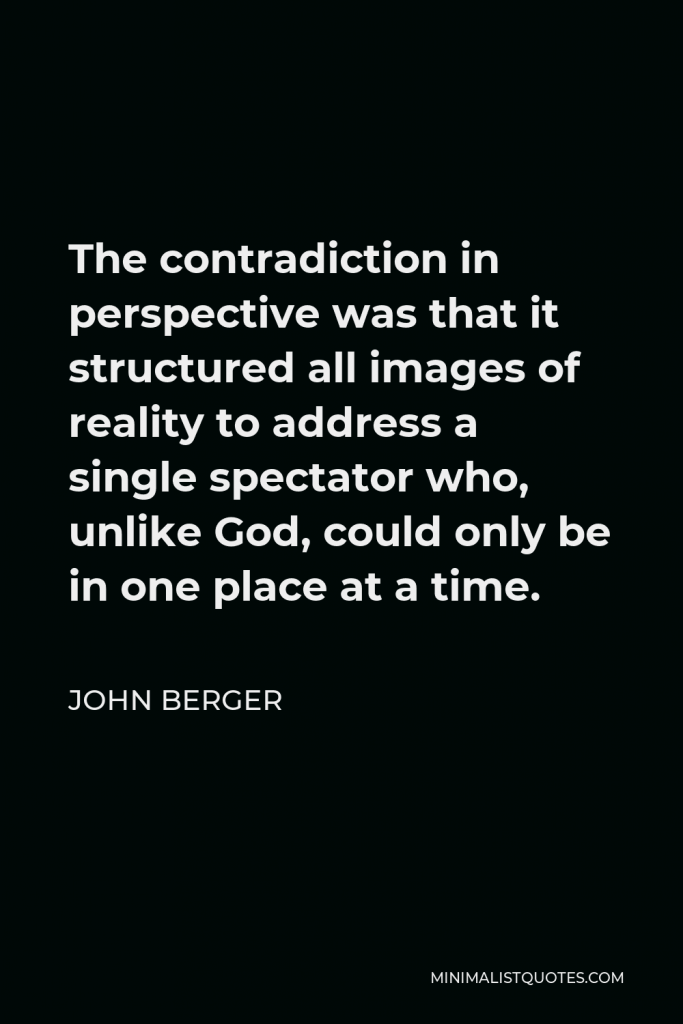Matisse did neither. He clashed his colours together like cymbals and the effect was like a lullaby.
JOHN BERGERWhen we read a story, we inhabit it. The covers of the book are like a roof and four walls.
More John Berger Quotes
-







-







To live and die amongst foreigners may seem less absurd than to live persecuted or tortured by one’s fellow countrymen….
JOHN BERGER -







Art, when it functions like this, becomes a meeting-place of the invisible, the irreducible, the enduring, guts, and honor.
JOHN BERGER -







This determines not only most relations between men and women but also the relation of women to themselves.
JOHN BERGER -







All photographs are there to remind us of what we forget. In this – as in other ways – they are the opposite of paintings.
JOHN BERGER -







Photographs bear witness to a human choice being exercised in a given situation.
JOHN BERGER -







To remain innocent may also be. to remain ignorant.
JOHN BERGER -







All creation is in the art of seeing.
JOHN BERGER -







The century of people helplessly seeing others, who were close to them, disappear over the horizon.
JOHN BERGER -







The relation between what we see and what we know is never settled. Each evening we see the sun set.
JOHN BERGER -







It is not an art of the princes or the bourgeoisie. It is popular and vagrant. In the sky of the cinema people learn what they might have been and discover what belongs to them apart from their single lives.
JOHN BERGER -







Emigration, forced or chosen, across national frontiers or from village to metropolis, is the quintessential experience of our time.
JOHN BERGER -







Oil painting did to appearances what capital did to social relations. It reduced everything to the equality of objects.
JOHN BERGER -







The existence of pleasure is the first mystery. The existence of pain has prompted far more philosophical speculation.
JOHN BERGER -







The unsung, impersonal world remains outside, on the other surface of a placenta. All songs, even when their content or rendering is strongly masculine, operate maternally.
JOHN BERGER -







The contradiction in perspective was that it structured all images of reality to address a single spectator who, unlike God, could only be in one place at a time.
JOHN BERGER







